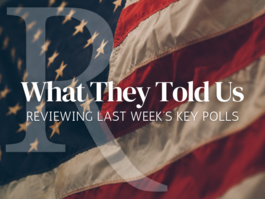24% Say Country is Heading in Right Direction
For the second week in a row, 24% of Likely U.S. Voters think the country is heading in the right direction, according to a new Rasmussen Reports national telephone survey for the week ending November 10.
Confidence in the country’s direction fell to 13% one month ago in the midst of the partial federal government shutdown. It was the lowest finding in five years. The week before Election Day a year ago, 43% said the country was heading in the right direction.
(Want a free daily e-mail update? If it's in the news, it's in our polls). Rasmussen Reports updates are also available on Twitter or Facebook.
The national telephone survey of 3,500 Likely Voters was conducted by Rasmussen Reports on November 4-10, 2013. The margin of sampling error for the survey is +/- 2 percentage points with a 95% level of confidence. Fieldwork for all Rasmussen Reports surveys is conducted by Pulse Opinion Research, LLC. See methodology.


















